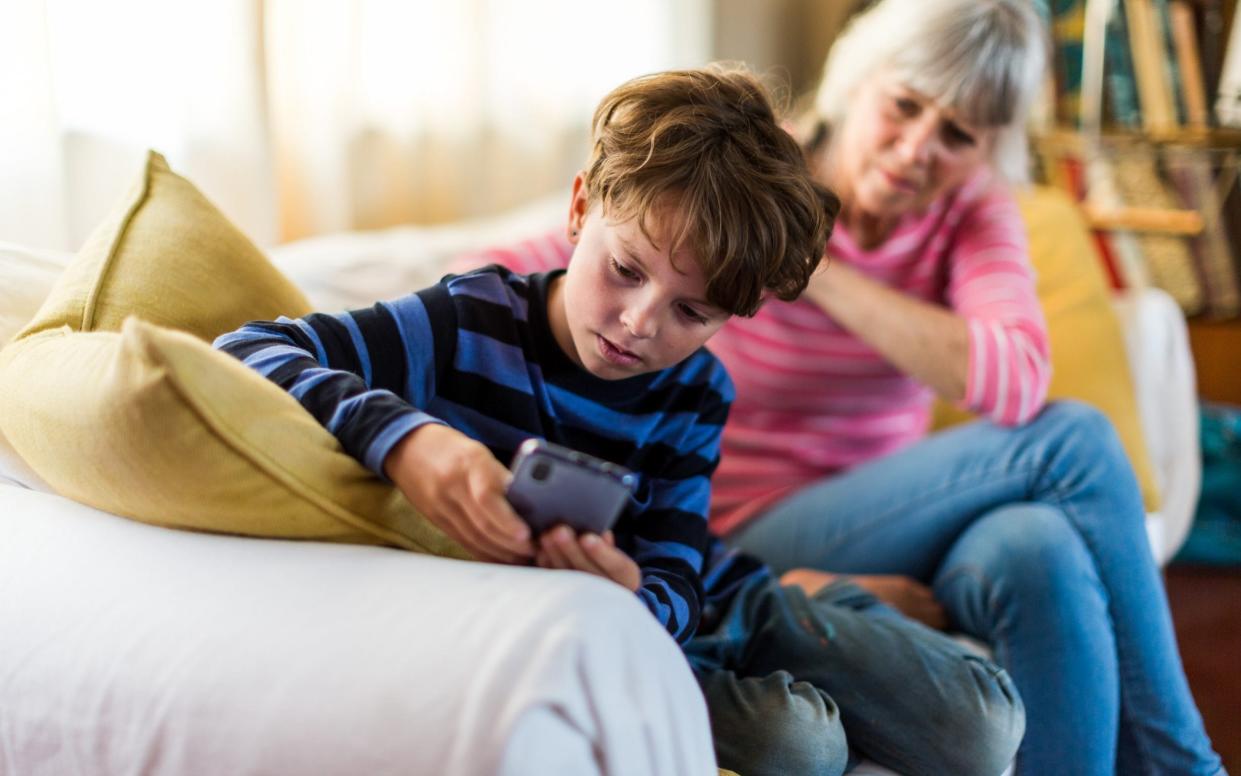Parents urged to buy ‘dumb’ phones to protect children from social media

- Oops!Something went wrong.Please try again later.
Parents should be able to buy phones without social media apps for teenagers, the leader of the UK’s biggest teaching union has said.
Daniel Kebede, general secretary of the National Education Union (NEU), warned there is “a link between the addictive nature of social media and screen time and how teenagers are feeling”, after teachers reported a sharp rise in the number of pupils with poor mental health.
He told The Telegraph that “parents should have a choice and should be able to get phones for their teenager that come without access to apps”.

The NEU leader has become the latest prominent figure to support restrictions on “addictive” social media apps for children.
Since February, tens of thousands of parents have joined a grassroots movement, Parents for a Smartphone-free Childhood, launched to help parents support each other in delaying giving their children smartphones. The group, which has been invited to Downing Street, is backed by campaigners including the actress Sophie Winkleman.
Esther Ghey, the mother of murdered teenager Brianna Ghey, has called for a ban on social media apps for under-16s.
Arabella Skinner, director of Safescreens Campaign, a parent-led operation which wants the Government to restrict smartphone use for under-16s, said: “The current options are either an old-style brick phone or a full-on smartphone.
“Children need an option that allows them to access the apps they need such as maps, train tickets, banking, homework but eliminates the risk of harmful content and addiction.”
She added: “It is encouraging to see the NEU recognising that the addictive nature of social media and smartphones is a serious and urgent societal issue and one that cannot be solved by parents alone.
“Childrens’ needs must be put before the profits of tech companies and parents need the support of regulation to resolve these issues. Safescreens are calling for expedited action now, a lengthy commission process will allow the widely recognised harms that smartphones and social media carry for children to continue unabated for too long.”
Mr Kebede said: “We think there is a link between the addictive nature of social media and screen time and how teenagers are feeling. Some social media and phone use can help teenagers connect and develop interests and hobbies but excessive use can cut out real world activities, exercise and time in the great outdoors.
“It’s important to be clear that social media and apps targeted at teens are often designed to be addictive and habit forming.”
However, he warned that “individual parents can’t family by family sort out the wider problem of damage caused by social media”.
“The big tech companies need to be much more proactive about taking down harmful content faster, changing algorithms and taking responsibility for the impact of social media on teenagers well-being,” he said.
Addressing teachers in his speech on the last day of the NEU annual conference on Saturday, he said: “The mental health of our young people has plunged since 2010, and levels of depression, anxiety, self-harm, and suicide have soared.
“Conference, the development of social media and online forums have contributed to this.”
He added: “Social media giants should be made to have social responsibility to our children.
“We need an Independent Parliamentary Commission, as a start of a process of deep-seated reform to the way social media is regulated.And we will work with anyone prepared to make this happen.”
Mental health deteriorating
An NEU survey of 8,000 teachers this year found that 88 per cent of teachers have seen an increase in the prevalence of student mental health issues over the last year, with 57 per cent saying it has “increased greatly” in that short period of time.
Half or more told the NEU that pupils are regularly displaying chronic anxiety, exam anxiety, or absenteeism, as a result of mental ill-health. Three quarters of teachers said they identify “general social difficulties” among pupils.
Last month, a Parentkind survey showed that most parents support a ban on smartphones for under-16s, with primary school parents expressing particularly high support.
The poll of 2,496 parents in England with at least one child aged between four and 18 found that about 58 per cent back a smartphone ban for under 16s. Among primary school parents, support for a ban for under 16s was 77 per cent.
The Department for Education has been contacted for comment.

